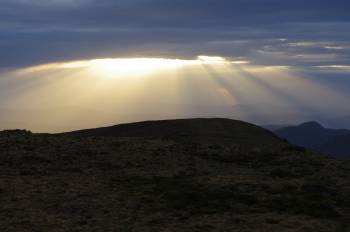‘Van life’ might be a popular Instagram hashtag, but it hides the multitude of reasons why people spend winter in their vehicles. More and more people are choosing to spend their winters outside as they pursue their snow dream. For others it is a necessity as rents climb and erratic winter snow impacts on the availability of work. James Worsfold delves into the issue.
This story originally appeared in the 2024 Mountain Journal magazine (#4). Available as a PDF here > https://themountainjournal.com/2024/03/19/mountain-journal-magazine-4-now-online/
As the winter sun sets over the alps, you might expect the mountain carparks to become desolate.
Paying close attention, however, you may find evidence of life: the steam of a camping stove or an interior light beaming from behind a curtain. This is the habitat of the elusive winter van-lifer.
Seasoners, like myself, have chosen to spend the mountain winter in a van for a multitude of reasons.
Some are forced into the situation by hardship. Several of my friends, out of a resort job that included accommodation, were given no option but to sleep in their cars. Others have had the luxury of choice, embracing the lifestyle as an affordable and adventurous way to experience the Australian snow season.

Cost of living tends to play a big role in deciding to live the winter van-life. The enjoyment of winter work has become more difficult to weigh up against high rent, crowded staff accommodation, low wages and a lack of guaranteed working hours.
Bridie Rawson, a Jindabyne-based backcountry guide, said that living in her van gave her the freedom to volunteer and travel without having to worry about financial burdens.
Bridie also runs Tough Tits Co, a project for the advancement of women in the snowsports community. For her, living without the pressure of rent has enabled her to work less and devote more time to her community initiative.
“The overhead was too much for accommodation to balance out the two,” she told me.

April Bright, an adventure guide and photographer, also chose to do a season in her van to make the most of winter experiences.
For most, a snow season requires a full-time wage to support high living costs, which usually means missing out on the good powder days in order to pay rent.
For April, being free of this financial burden gave her the opportunity to upskill, making the most of small windows of good conditions. “It was an investment into guiding work. I could go out and get the experience I needed,” she told me.

Similarly, living in my van allowed me to enjoy more free days and still be able to stay afloat financially. Previously, I often had to tolerate poor conditions in the backcountry on my off-days (if I had the energy after a full week working on-snow). This season, however, I could pick my days and have more pleasant (and potentially safer) adventures.
Living in a van also provides a unique experience of mountain life. I was drawn to working a season by my love of the alpine environment, however, found myself in the midst of human-made development that I was trying to escape. Against the expanse of the mountains, the bustle of a ski resort can seem quite jarring.
To me, switching to a van meant living with the landscape, and others certainly shared this perspective. Bridie said she enjoyed connecting with wildlife and cooking amidst beautiful sunrises and sunsets:
“When you don’t have a home,” she told me, “you end up hanging out in the outdoors so much more.”
Similarly, April found that spending the winter in her van was a simpler, more wholesome experience.
“It’s really easy to do. It’s a lot more uncomfortable, but there is a much greater reward,” she said.
While we put in more effort to meet our basic needs such as getting warm, drying our gear and collecting water, we found ourselves worrying less about other issues in our lives.
Though living alone in a van can seem isolating, I felt more motivated to reach out to the mountain community, spending evenings at friends’ places, sitting down at a pub to study or cooking dinner with fellow campers in a cattleman’s hut. And with limited facilities on offer, fellow members of the van community soon find each other.

As many seasoners find it harder to keep up with the cost of living on the mountain, we may soon find the carparks more alive.
























































Leave a comment